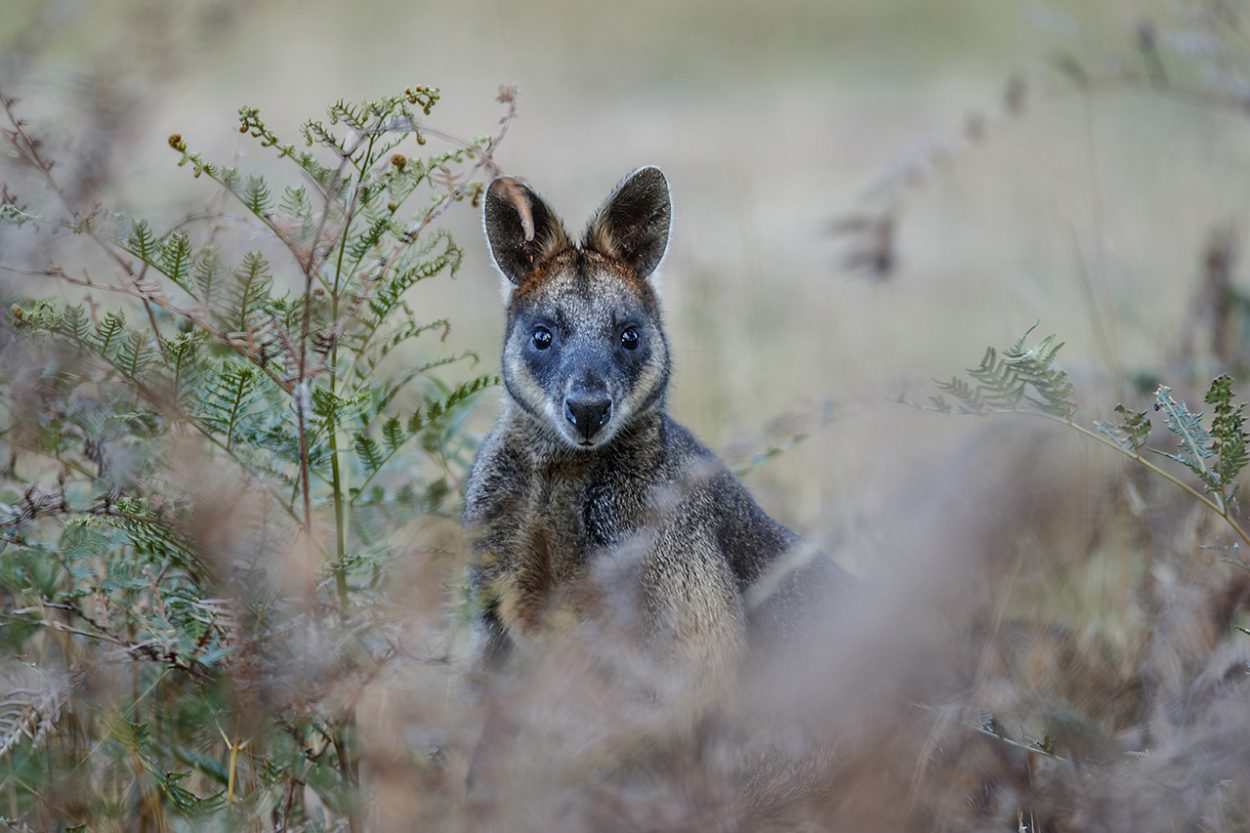A booming wallaby population at The Briars nature sanctuary will see Mornington Peninsula Shire councillors hold an urgent meeting about how to best manage their future.
Mayor Cr Anthony Marsh called for an unscheduled online public meeting for 16 September to “urgently address animal welfare concerns at The Briars”.
He said wallaby numbers had surged to around 150 despite the Mt Martha sanctuary having the capacity to sustainably hold just 30, leading to starvation and some deaths of the macropods.
The Briars Wildlife Sanctuary is home to kangaroos, koalas, emus, echidnas and more. Southern brown bandicoots have also been reintroduced in recent years.
In calling the meeting, Marsh said in a social media post on 12 September that “when it became evident that we did not have consensus to move forward quickly on the officer recommendation, it was necessary to bring this matter forward for a formal decision without delay”.
Marsh noted that “council has a clear responsibility to ensure the humane treatment of animals in our care”.
Speaking to The News ahead of the meeting, Marsh confirmed councillors would consider three options, with a preferred choice being desexing, providing food and rehoming some of the animals — the option recommended by council officers.
Other options, which would cost less, include culling female adult wallabies and joeys, or indiscriminate culling.
Marsh said he believed that the community’s expectation would be that councillors “deal with this in the most humane way”.
While he could not say which way he would vote, he conceded, “I have no interest in supporting the culling of native animals inside a wildlife sanctuary. It’s a bit of a no-brainer, isn’t it?”
Marsh said the meeting was called after losing consensus for a non-cull approach, and “because we don’t have weeks to waste here, I’ve called an urgent meeting”.
“It’s an operational matter because it’s highly sensitive and political,” he said.
“We’re talking about the urgent welfare of animals in an operating facility of the shire… there’s definitely an important vote, and I want to be completely transparent about what we’re doing here.”
A source speaking anonymously to The News said that sometimes these issues are not as clear-cut as they first appear.
“Our instincts are to go with what can at first glance be the most humane, but sometimes it actually isn’t. It is worth taking a closer look, and examining the recommendations presented to council,” the source said.
Cr David Gill disputes Marsh’s claim that consensus on how to deal with the wallaby overpopulation was lost.
“There was an officer recommendation before councillors,” said Gill.
“Consensus was never sought and was not lost. In fact, nobody seemed in favour of culling at all.
“There was consensus to act quickly to move the wallabies and to feed them. But because there were three options, councillors wanted more time to consider the options fully. That is the sensible thing to do.
“My opinion is we should immediately open the rest of The Briars, if possible, to the overpopulated wallabies and provide feed so there is immediate action to keep the wallabies alive.”
Gill was also unhappy that the issue was posted onto social media.
“Singling out some councillors as being more willing to take action over other councillors on social media was just inappropriate.”
Gill hopes the animal welfare issue before councillors will result in a renewed focus on the peninsula’s wildlife.
“I hope this is a signal from the mayor and some other councillors that there will be support for my long-term efforts to have a wildlife management plan and a wildlife hospital on the peninsula, which has been ignored despite the plight of many of our threatened native species,” said Gill.
In a show of how the decision may shape, Marsh, in his social media post, thanked Deputy Mayor Cr Paul Pingiuario, along with councillors Andrea Allen, Stephen Batty, Cam Williams, and Bruce Ranken “for their strong advocacy and support in ensuring this critical issue was brought to a head and promptly to council”.
A council report was due to be circulated on Monday 15 September, outlining the current situation, including a review from Melbourne University and Ecology Australia about how to best approach the matter.
First published in the Mornington News – 16 September 2025



